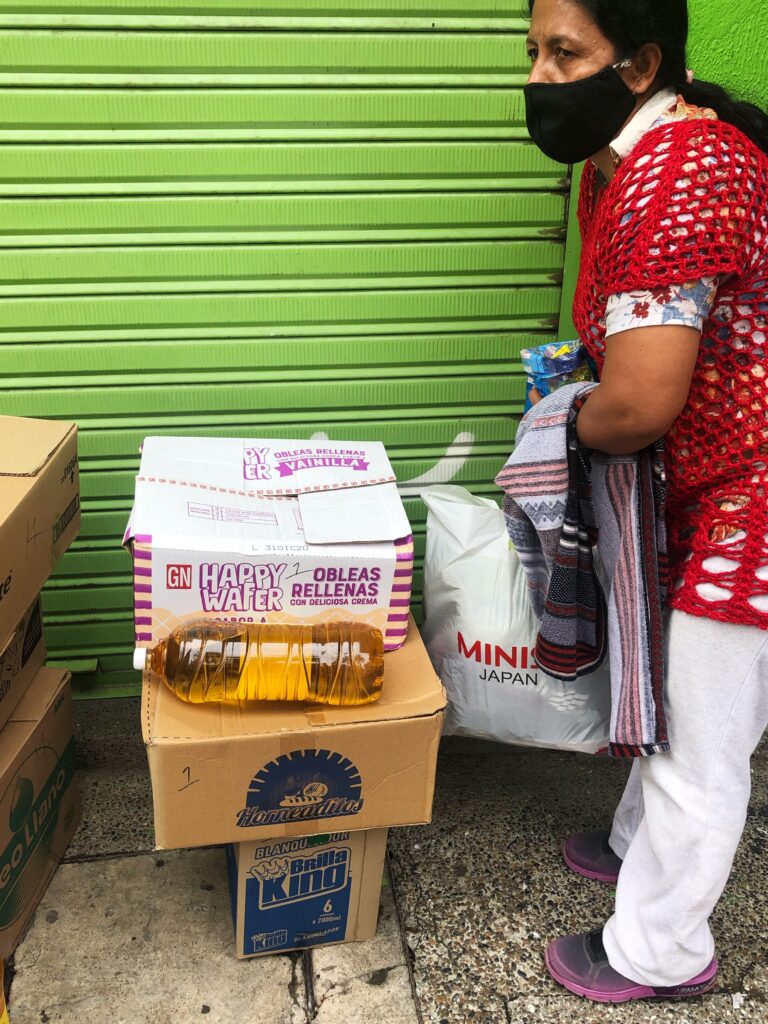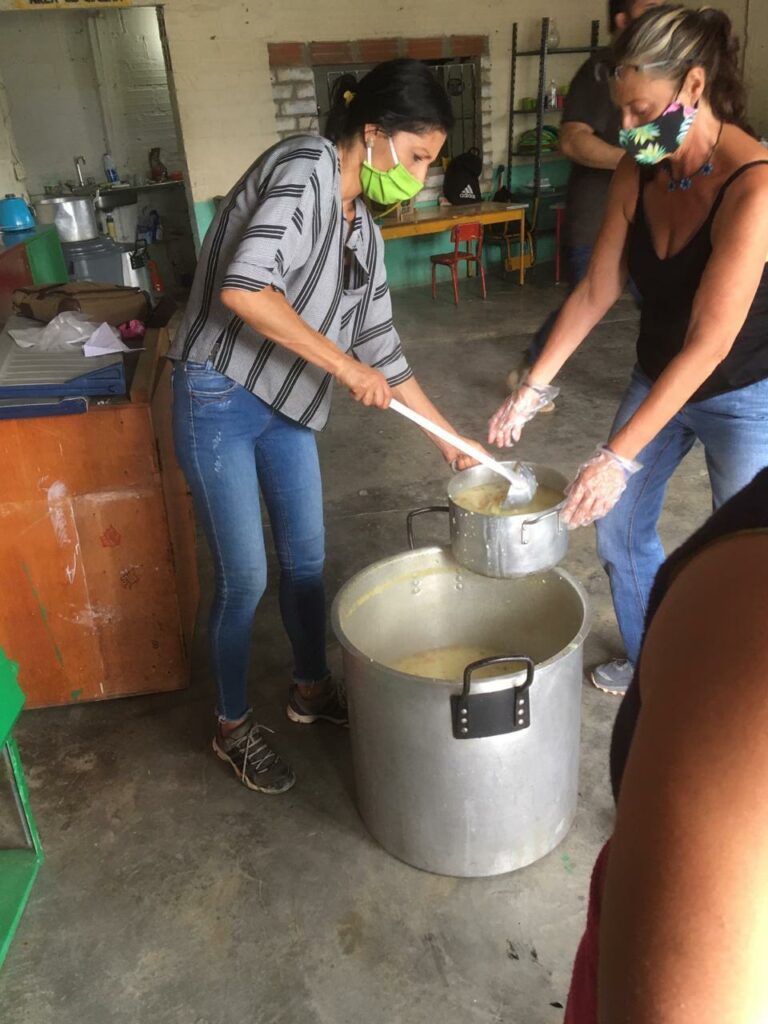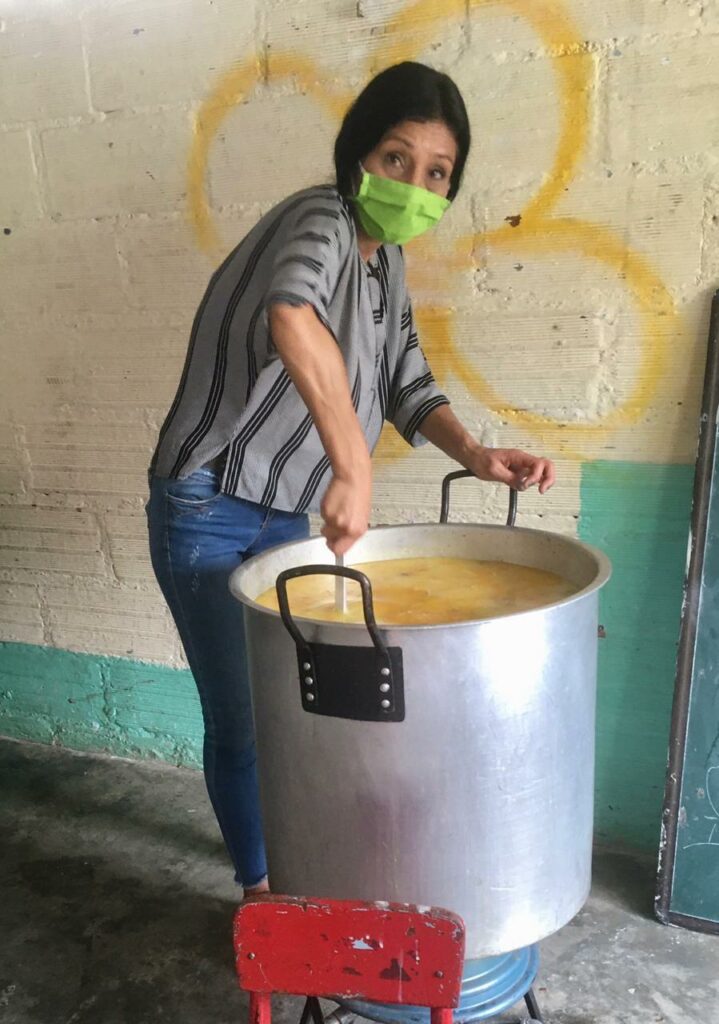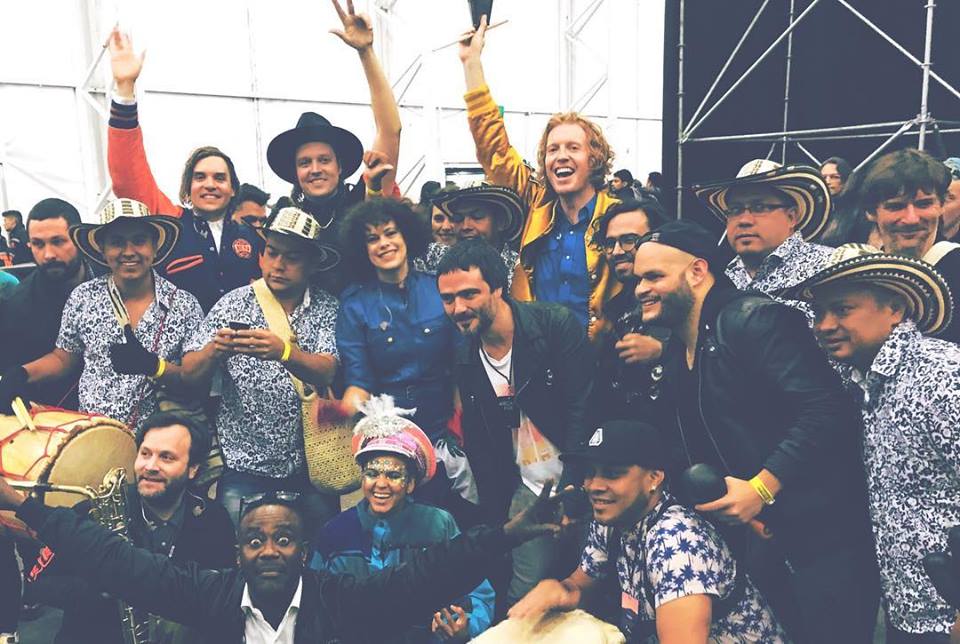The effects of the COVID-19 pandemic have been felt throughout Colombia. In a country that has battled poverty and inequality for decades, the crisis has struck the most vulnerable communities hardest.
More than half of all workers in Colombia operate in the informal economy, relying on selling goods in the street for daily income. Under quarantine measures, these groups have been unable to earn a livable wage, and in some cases, have resorted to displaying red flags in their homes to signal to passersby that they need help. In Colombia’s second biggest city of Medellín, people have also taken to the streets in protest after food supplies promised by President Iván Duque never arrived.
According to the International Labor Organization, women workers have been disproportionately affected by the pandemic. In Colombia, thirty-five percent of children age 0-14 live in single-parent families, the majority of which are headed by women. At the same time, there have been reports of heightened violence against female social leaders and activists.
For women, the pandemic is worsening their already limited access to employment, housing, and social mobility. In particular, females among the 1.2 million Venezuelan migrants in the country are facing the added complication of no support network, no social welfare, and the inability to legally work.
In response, Medellín-based Proyecto Florecer is providing single mothers and their families the food and tools to survive in the pandemic and beyond. I spoke to founders Erin Colton-Enberg, Mar Rosati, and Sheridan Bibo about empowering women in Colombia and running a not-for-profit organization in a global crisis.
What is Proyecto Florecer? What’s its story?
Proyecto Florecer is a not-for-profit organisation that provides young women and teens with tools that will help them become leaders of their community. We host a series grass-roots programs, led by local community volunteers, offering Latin American women the opportunity to break cycles of poverty, under-employment, sex trafficking, gender discrimination, drug abuse, early pregnancy, under-education and abusive relationships.
We combine community building with education and humanitarian service to develop a network of positive-minded, action-oriented women dedicated to improving outcomes in their neighborhood.
Because of the COVID-19 food crisis in Colombia, we’ve also extended our services to include a community kitchen that serves some of the most impoverished women and children in the city of Medellín.

Why is the mission important now?
Our goal since we started has always been to challenge the status quo, to enable young women to reach their potential, build positive communities of support, and understand their own capacity to be agents of change. With the arrival of Coronavirus in Colombia, our focus has shifted from providing in-person workshops due to country-wide restrictions, to focusing on a more pressing need: food scarcity and unemployment.
“Through starting a community kitchen, our goal is to provide a space for women to come together once a week where they can not only serve their community, but also gain the skills and confidence to become leaders.”
Through starting a community kitchen, our goal is to provide a space for women to come together once a week where they can not only serve their community, but also gain the skills and confidence to become leaders.
Our work supporting women of all ages is more important than ever as we enter the fifth month of quarantine in Colombia which has had a devastating impact on those especially who work in the informal job sector. With skyrocketing unemployment, we are searching for ways to support single mothers and their families with food once a month but also create a long-term sustainable model for community building, education and humanitarian service. Through starting a community kitchen, our goal is to provide a space for women to come together once a week where they can not only serve their community, but also gain the skills and confidence to become leaders.
What are your short-term and long-term goals?
Short term, our goal is to not let the challenges of the Coronavirus pandemic be a problem, but rather a solution to continue doing the important work that we do. Within the next few months we are hoping to see our community kitchen take life and begin to serve up to 400 people once a week. We also hope to provide workshops around the same themes as well as focus on employability skills as the women navigate this difficult time of unemployment.
Long term, we hope to see this project becoming self-sustainable and providing women with meaningful employment opportunities for themselves and seeing them as leaders locally and abroad. We aim to create a model that can be replicated in communities across the world and tailored to the needs of all young women, whatever their circumstances.
What have been the biggest obstacles along the way?
One of our biggest challenges has been getting long-term sustainable funding for the project. We have relied heavily on donations from our community near and far but we are looking for the best option to create something to sustain us long-term rather than month-to-month.
As a whole, the way that Proyecto Florecer has navigated and adapted to the unforeseen circumstances of this year has been one of the most inspiring and memorable moments. After almost throwing in the towel in March and putting a pause on the project, we took a week and regathered ourselves and are now full steam ahead focusing on new initiatives with the same goal in mind. The possibilities of this project are endless and it is because of the support of the team, our community and volunteers that it is possible.
How can people get involved with Proyecto Florecer?
Even from home there are ways to get involved with what we are doing at Proyecto Florecer. From content writers, to social media management, to curriculum development we are always looking for people to get involved and collaborate – visit our Get Involved page for more information.
We’re also looking for donations to carry out our work. We understand that everyone is struggling right now and we’re incredibly grateful for any amount that people are able to give. For reference, $15,000 COP ($4 USD) can provide a hot lunch for 10 people in the community kitchen, while $150,000 COP ($40 USD) can buy monthly food and hygiene products for a family.
Donations can be made via this link. Payments can be sent using PayPal, QR code, and credit/debit cards.
After recently talking to one of the mothers who gets groceries from us, she told us how she was worried about her children, how tense the household is, and how she wasn’t sure how to buy clothes or food for them all – and how this kept them fighting. When we asked her about the groceries we had sent, her voice lit up and she told us that it had changed the entire household. She told us she is now able to sleep at night.
Hopefully Proyecto Florecer can help many more women sleep easily.
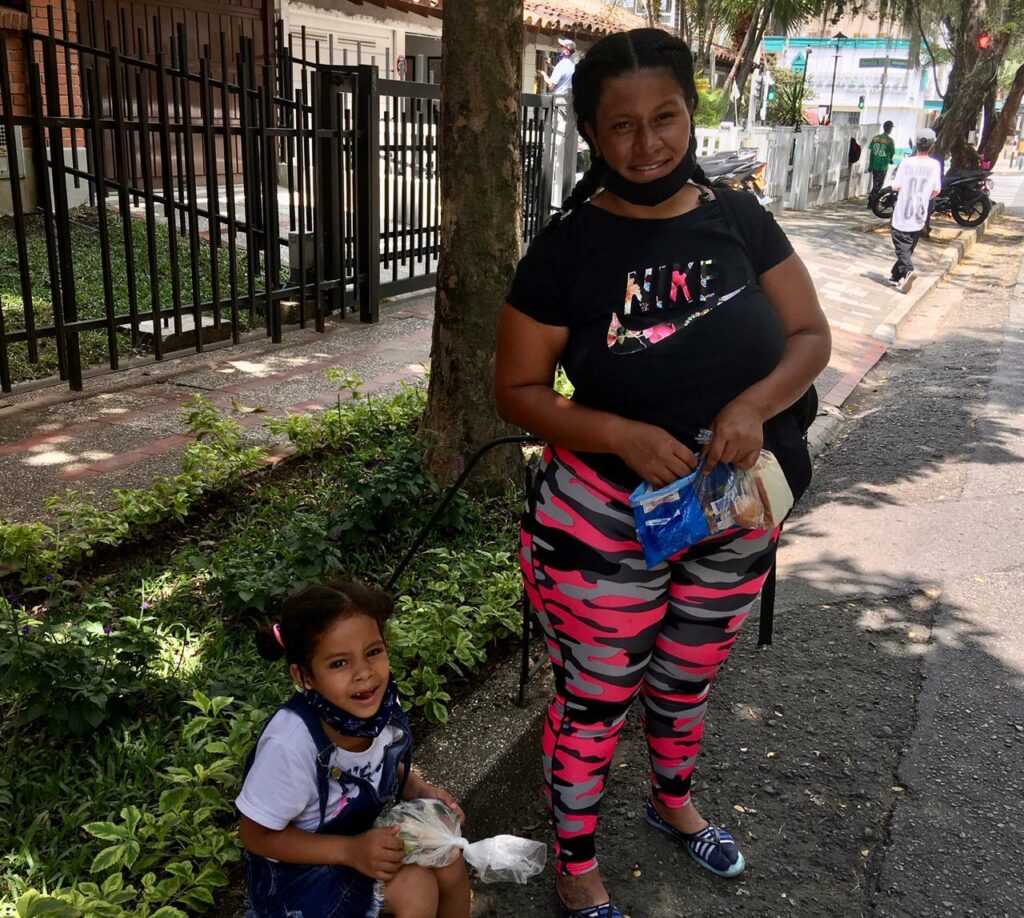
Grace Brennan is a writer and editor living in Colombia.

